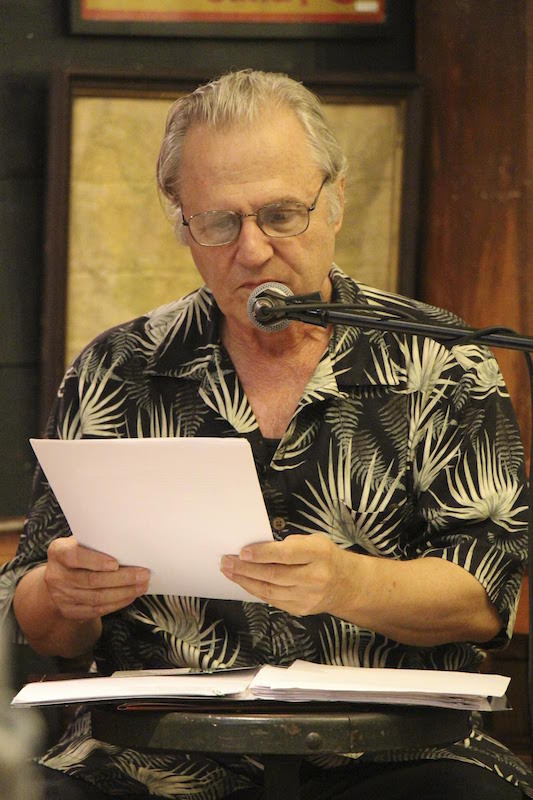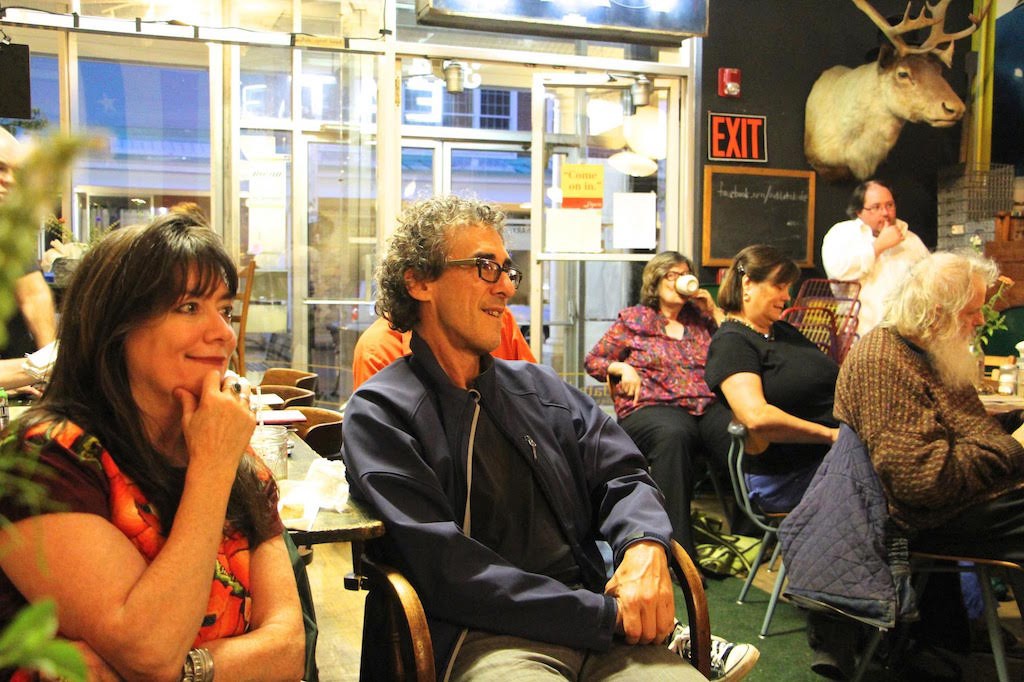WORD CAFE EVENT ARCHIVE GERARD MALANGA – 9/10/15
Our third season got off to a smashing start. Our guest was poet and creative force of nature Gerard Malanga; our subject was “Where To Begin.”
 Gerard read a selection of poems, including a series of portraits and elegies, which he called “poems about someone else. And me too; I’m the witness.” The subjects included William S. Burroughs, Stefan Zweig, Gabriele D’Annunzio, and Valerie Eliot (T.S. Eliot’s widow and editor), along with Alphonse and Yolanda diPaolo of Fordham Road (“my upstairs neighbors, my upstairs world.”) One of many lines that caught my ear and stuck: “a fandango of love and leaping.”
Gerard read a selection of poems, including a series of portraits and elegies, which he called “poems about someone else. And me too; I’m the witness.” The subjects included William S. Burroughs, Stefan Zweig, Gabriele D’Annunzio, and Valerie Eliot (T.S. Eliot’s widow and editor), along with Alphonse and Yolanda diPaolo of Fordham Road (“my upstairs neighbors, my upstairs world.”) One of many lines that caught my ear and stuck: “a fandango of love and leaping.”
Though the writer’s point of entry is not always the same as the reader’s, Gerard often begins his poems with their first line, following a stream of consciousness to see where the poem will take him. “Once I have the first line, I self-hypnotize,” he said. He detailed his morning routine: feed the cats, leave the house by 7:00, buy the New York Times, order a cafe latte and pastry at his favorite cafe. While reading the newspaper, he often circles or underlines phrases or sentences that strike him, then starts writing in the margin. Not all poems begin this way, and not all marginal scrawls become poems–“the muse is fickle”–but it’s a daily practice.
He has five typewriters at home, and uses two of them, typing up works in progress on yellow legal paper. He handwrites and types all his drafts, moving to a computer “as a storage facility” only when the poem is finished.
Gerard called his poems “visually erratic,” with a mix of long and short lines. “I don’t care how long the line is. I’ll go all the way to the margin.” He reads his drafts aloud, listening for rhythm and “inner breathing.” He calls this process “scoring” the poem, as a composer does.
He’s a very eclectic reader. Nina noted that his emails always end with the phrase “Current bedtime reading:” and an ever-changing array of titles; Gerard explained, “That’s not to beat my own chest, but to remind people that reading, and reading widely, is a healthy activity.” Amen!

THE EXERCISES:
— Gerard suggested starting a poem that’s not about your own experience, but somebody else’s. Start by writing the person’s name at the top of the page.
— Nina passed out a stack of upside-down stereopticon cards (vintage double-image photos), asking participants to turn them over, write down the first phrase that comes into your mind, and see where it leads you.
In both cases, the idea is to write something down on the blank page immediately, and follow your instincts. The work people shared, after only ten minutes of writing, was fresh, spontaneous, and extraordinary. No matter how little time you have, take that first step and keep going.
![]()